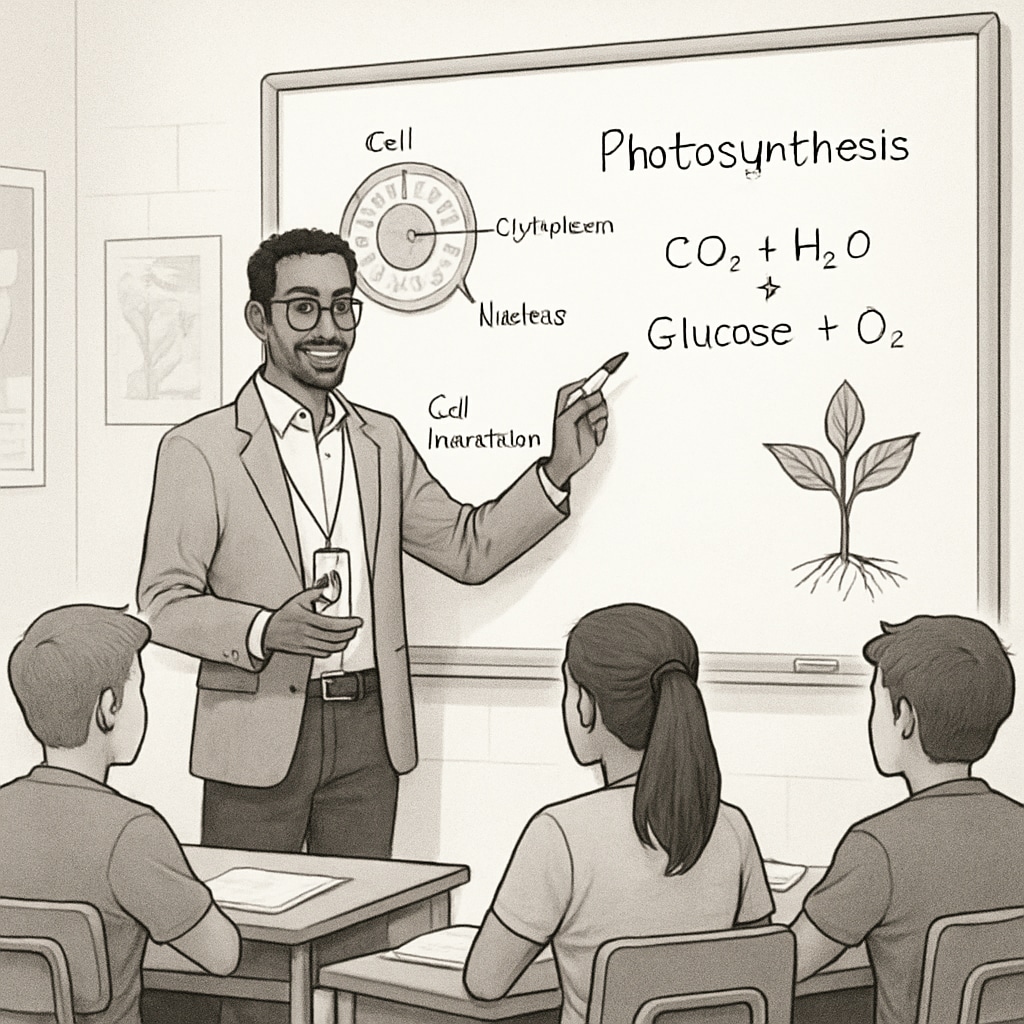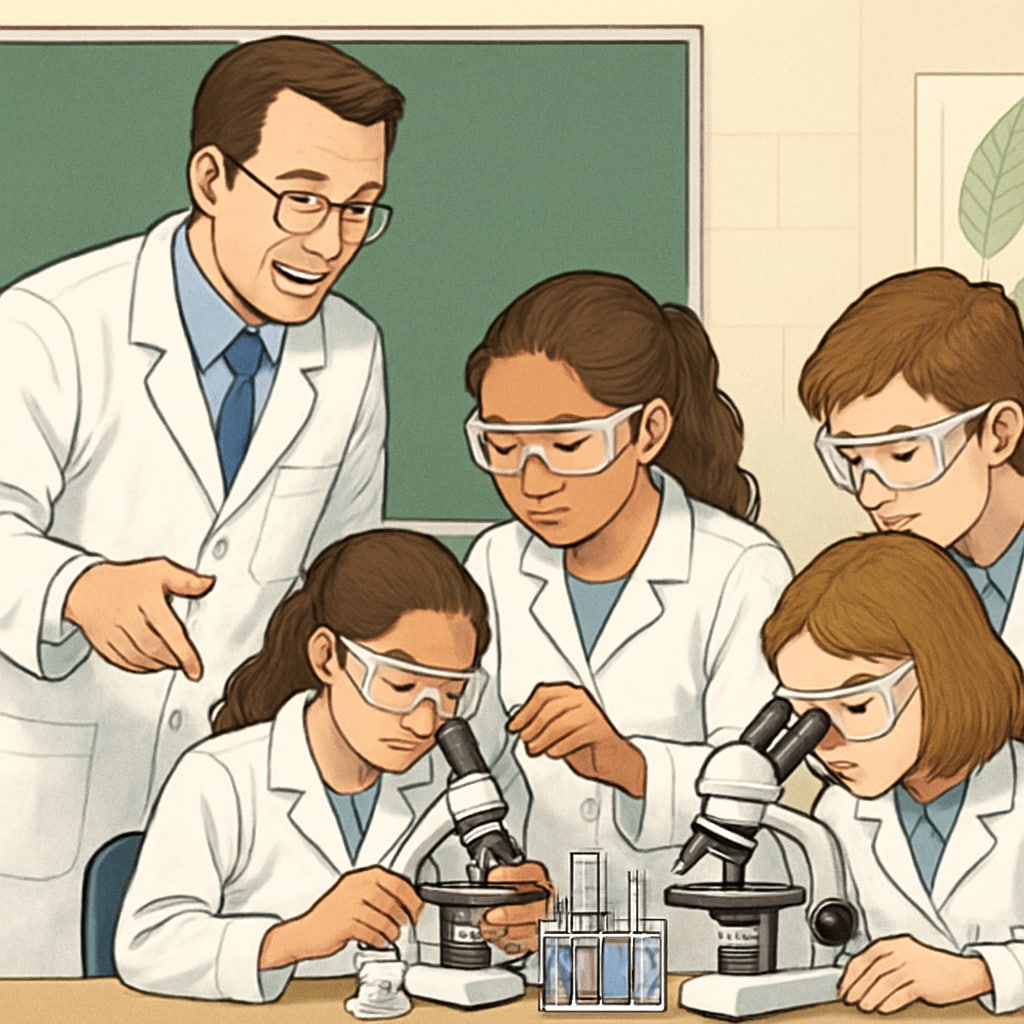For biology majors contemplating a shift into the education field, the journey might seem daunting yet full of potential. Transitioning from studying the complexities of cellular structures to inspiring young minds in classrooms highlights the versatility of a biology degree. In this article, we explore the feasibility of this career transition, discuss the advantages and challenges, and provide actionable advice for biology students aspiring to become educators. Whether it involves pursuing an education master’s degree or leveraging undergraduate knowledge, this professional shift can lead to a fulfilling and impactful career.
Why Should Biology Majors Consider a Career in Education?
Biology majors often possess a natural curiosity about life sciences and a desire to share their knowledge. Transitioning into education allows them to transform their academic expertise into a tool for inspiring others. Here are some compelling reasons:
- Impactful Contributions: Teaching provides an opportunity to inspire the next generation of scientists, critical thinkers, and informed citizens.
- Transferable Skills: Skills such as data analysis, research, and critical thinking developed in biology programs are highly relevant in educational settings.
- Job Market Demand: The demand for qualified science teachers, particularly in STEM (Science, Technology, Engineering, and Mathematics) fields, continues to rise globally.
- Personal Fulfillment: Many biology graduates find teaching to be a rewarding and meaningful career choice.
Steps for Transitioning from Biology to Education
Making a successful shift from biology to education requires careful planning and preparation. Below are some practical steps for biology majors considering this transition:
- Research Educational Pathways: Determine if an education master’s degree (such as an M.Ed. or MAT) is necessary for teaching in your desired region.
- Gain Classroom Experience: Volunteer or work as a teaching assistant to understand the dynamics of a classroom and assess your interest in teaching.
- Get Certified: Many regions require teaching certifications. Research the specific requirements, such as Praxis exams in the U.S. or PGCE in the U.K.
- Leverage Biology Knowledge: Highlight your biology expertise when applying for teaching roles, especially in high-demand areas like high school science.
- Develop Soft Skills: Communication, patience, and adaptability are essential for educators and should be honed during your career transition.

Challenges of Career Switching and How to Overcome Them
Like any career shift, moving from biology to education comes with its own set of challenges. Below, we outline common obstacles and strategies to address them:
- Financial Barriers: Pursuing additional qualifications, such as an education master’s degree, can be costly. Seek scholarships, grants, or part-time teaching opportunities to offset expenses.
- Adapting to a New Environment: Transitioning from a laboratory or research setting to a classroom may require a mindset shift. Engage in professional development workshops to ease this adaptation.
- Managing Expectations: Teaching is demanding, with responsibilities extending beyond classroom hours. Connect with mentors and experienced educators to gain realistic insights into the profession.
- Meeting Certification Requirements: Understand the certification process and timelines in advance to avoid delays in your career transition.
The Long-Term Value of a Biology-to-Education Career Transition
The decision to pivot from a biology-focused career to teaching offers long-term benefits, both personally and professionally:
- Career Stability: Education is a stable and respected profession with opportunities for growth, such as becoming a department head or curriculum developer.
- Broader Impact: As a teacher, you influence not only individual students but also the broader community by promoting scientific literacy and curiosity.
- Personal Growth: Teaching fosters empathy, leadership, and lifelong learning—qualities that enrich your personal and professional life.
In conclusion, transitioning from biology to education is a viable and rewarding path for those passionate about teaching. By leveraging their expertise in biology and embracing the challenges of the education field, aspiring educators can make a meaningful impact. Whether through pursuing an education master’s degree or directly entering the classroom, biology majors have the potential to inspire a new generation of learners.

Readability guidance: This article uses short paragraphs, lists, and transitional phrases to ensure clarity. Active voice is prioritized to enhance engagement, and technical terms are explained where necessary. Readers can explore related topics, such as STEM education on Wikipedia and education systems on Britannica, for further insights.


